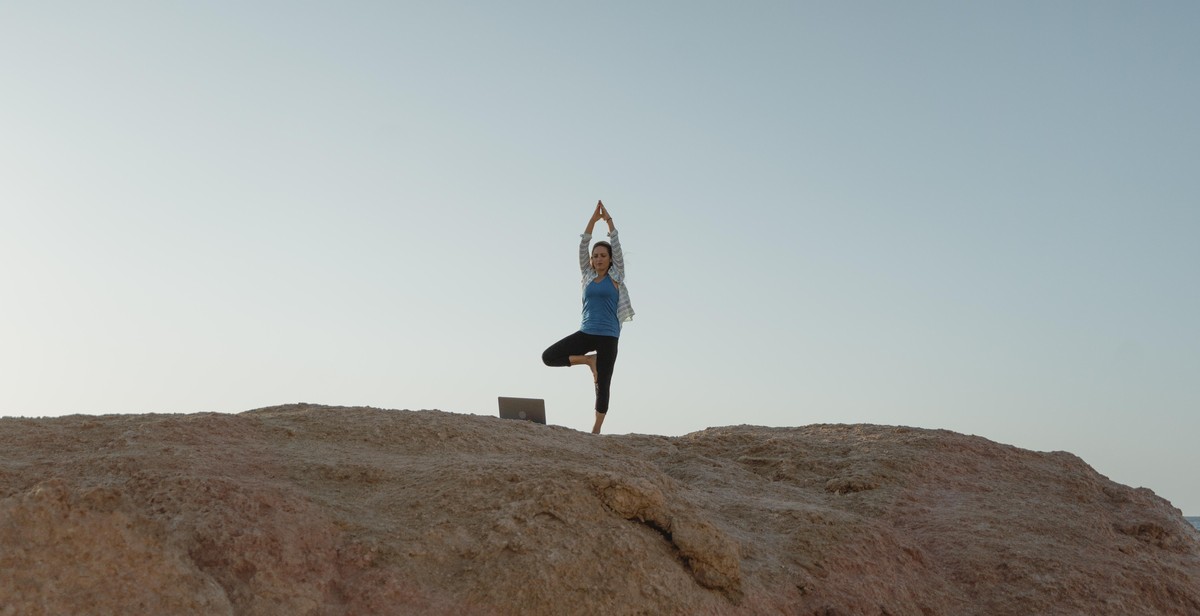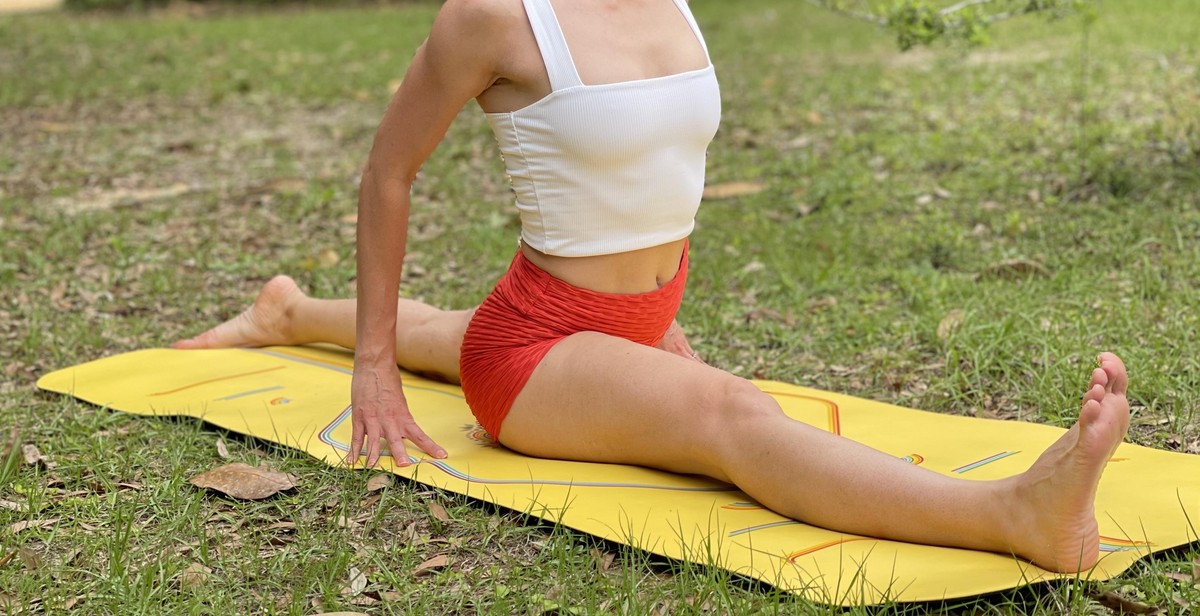How to Develop a Meditation Practice for Stress Relief and Mindfulness
Stress and anxiety have become an integral part of our daily lives. The fast-paced lifestyle, work pressure, and personal issues have made it difficult to find peace of mind. Meditation is an ancient practice that has been proven to reduce stress, anxiety, and depression. It helps in improving focus, concentration, and mindfulness.
If you are new to meditation, developing a practice can seem overwhelming. However, with the right guidance and approach, you can easily incorporate meditation into your daily routine. This article will provide you with a step-by-step guide on how to develop a meditation practice for stress relief and mindfulness.
Step 1: Find a Quiet and Comfortable Place
The first step in developing a meditation practice is to find a quiet and comfortable place. It could be a corner in your house, a park, or any other place where you can sit undisturbed for a few minutes.
Step 2: Choose a Time
Choose a time that works best for you. It could be early in the morning, before going to bed, or any other time of the day when you can sit undisturbed for a few minutes.
Step 3: Get Comfortable
Once you have found a quiet and comfortable place, sit down in a comfortable position. You can sit on a cushion, a chair, or on the floor with your legs crossed.
Step 4: Focus on Your Breath
Close your eyes and focus on your breath. Take deep breaths and feel the air moving in and out of your body. If your mind wanders, gently bring it back to your breath.
Step 5: Start with Short Sessions
Start with short meditation sessions of 5-10 minutes. Gradually increase the duration as you get comfortable with the practice.
By following these steps, you can easily develop a meditation practice for stress relief and mindfulness. It is important to remember that meditation is a journey, and it takes time to master the practice. With patience and dedication, you can reap the benefits of meditation and lead a more peaceful and mindful life.

Understanding Meditation
Meditation is a practice that involves training the mind to achieve a state of calm and relaxation. It is an ancient practice that has been used for thousands of years to promote wellbeing and spiritual growth. Meditation can take many forms, including mindfulness meditation, transcendental meditation, and loving-kindness meditation.
What is Meditation?
At its core, meditation involves focusing your attention on a specific object, thought, or activity. This can be your breath, a mantra, a visualization, or even a physical sensation. The goal is to quiet the mind and become fully present in the moment.
During meditation, you may experience a range of sensations and emotions. You may feel more relaxed and centered, or you may become more aware of your thoughts and feelings. Over time, regular meditation practice can help you develop greater self-awareness, emotional regulation, and a deeper sense of connection to yourself and others.
Benefits of Meditation
There are many benefits to regular meditation practice. Here are just a few:
- Reduced stress and anxiety
- Improved focus and concentration
- Increased self-awareness and emotional regulation
- Enhanced sense of empathy and compassion
- Better sleep and overall physical health
Research has also shown that meditation can help reduce symptoms of depression, lower blood pressure, and even improve immune function.
| Types of Meditation | Description |
|---|---|
| Mindfulness Meditation | A practice that involves focusing your attention on the present moment and accepting it without judgment. |
| Transcendental Meditation | A technique that involves the use of a mantra to achieve a state of deep relaxation and inner peace. |
| Loving-Kindness Meditation | A practice that involves cultivating feelings of love, kindness, and compassion towards yourself and others. |
Regardless of the type of meditation you choose, the benefits of regular practice are clear. By taking the time to quiet your mind and focus your attention, you can reduce stress, improve your emotional wellbeing, and cultivate a greater sense of inner peace and contentment.

Preparing for Meditation
Meditation is a powerful tool for stress relief and mindfulness. However, to get the most out of your meditation practice, it’s important to prepare properly. Here are some steps you can take to prepare for meditation:
Setting Intentions
Before you begin your meditation practice, take a few moments to set your intentions. This means thinking about what you hope to achieve through meditation. Do you want to reduce stress and anxiety? Improve focus and concentration? Cultivate a sense of inner peace and calm? Whatever your goals may be, setting intentions can help you stay focused and motivated throughout your practice.
Creating a Meditation Space
Creating a dedicated meditation space can help you establish a consistent practice. Find a quiet, comfortable space where you can sit or lie down without distractions. You may want to decorate your space with calming colors or objects that inspire you. Consider using candles, incense, or essential oils to enhance the ambiance and create a peaceful atmosphere.
Choosing the Right Time
Choosing the right time to meditate is important for establishing a consistent practice. Ideally, you should try to meditate at the same time each day. This will help your body and mind get into a rhythm and make it easier to stick to your practice. Many people find that meditating first thing in the morning or before bed is most effective. However, you should choose a time that works best for your schedule and lifestyle.
By setting intentions, creating a meditation space, and choosing the right time, you can prepare yourself for a successful meditation practice. These simple steps can help you reduce stress, improve mindfulness, and cultivate a sense of inner peace and calm.

Starting Your Practice
Starting a meditation practice can be overwhelming, especially if you’re new to the practice. However, with a few simple techniques and a little bit of dedication, you can develop a meditation practice that works for you and helps relieve stress and promote mindfulness.
Breathing Techniques
One of the simplest and most effective meditation techniques is focusing on your breath. Start by finding a quiet space where you won’t be disturbed. Sit comfortably and close your eyes. Begin to breathe deeply and slowly, focusing on the sensation of the breath moving in and out of your body. If your mind starts to wander, gently bring your attention back to your breath. You can also try counting your breaths, inhaling for a count of four and exhaling for a count of four.
Body Scanning
Body scanning is another effective meditation technique that can help you relax and become more mindful of your body. Start by lying down or sitting in a comfortable position. Close your eyes and focus your attention on your toes. Slowly scan your body, paying attention to each part and releasing any tension you might be holding. Move up through your legs, hips, torso, arms, and head, releasing tension as you go.
Mantras and Affirmations
Mantras and affirmations can also be helpful in developing a meditation practice. Choose a word or phrase that resonates with you and repeat it to yourself as you meditate. This can help quiet your mind and bring a sense of calm and focus. You can also try affirmations, which are positive statements that help you focus on your goals and intentions.
- Remember to start small and be patient with yourself. Developing a meditation practice takes time and dedication, but the benefits are well worth it.
- Try to meditate at the same time every day to establish a routine.
- Experiment with different techniques to find what works best for you.
- Don’t worry if your mind wanders during meditation. Simply bring your attention back to your breath or chosen focus.
Table: Benefits of Meditation
| Benefit | Description |
|---|---|
| Reduced Stress | Meditation can help reduce stress and promote relaxation. |
| Improved Focus | Regular meditation practice can improve focus and concentration. |
| Better Sleep | Meditation can help improve sleep quality and reduce insomnia. |
| Increased Self-Awareness | Regular meditation practice can increase self-awareness and promote mindfulness. |

Overcoming Challenges in Developing a Meditation Practice
Developing a meditation practice can be challenging, especially for beginners. However, with the right mindset and strategies, you can overcome common challenges and establish a successful meditation practice for stress relief and mindfulness. Here are some of the common challenges you may encounter and how to overcome them:
Dealing with Distractions
One of the biggest challenges of meditation is dealing with distractions. It is normal to have thoughts, emotions, and external factors that can distract you during meditation. However, the key is to acknowledge them without judgment and refocus your attention on your breath or mantra. You can also try different meditation techniques, such as guided meditations or visualization, to help you stay focused and calm. Additionally, creating a conducive environment for meditation, such as a quiet and comfortable space, can also minimize distractions.
Staying Consistent
Another challenge is staying consistent with your meditation practice. It can be easy to get sidetracked by other responsibilities or lose motivation over time. To overcome this challenge, set a regular schedule for meditation and prioritize it as a non-negotiable activity. You can also find an accountability partner or join a meditation group to keep you motivated and committed. Remember that consistency is key to reaping the benefits of meditation.
Managing Expectations
Lastly, managing expectations can be a challenge when starting a meditation practice. It is important to understand that meditation is a process, and progress may not be immediate or linear. Instead of expecting immediate results, focus on the process and enjoy the journey. Celebrate small wins and be patient with yourself. Over time, you will notice positive changes in your mental and emotional well-being.
- Dealing with distractions is normal, acknowledge them without judgment and refocus your attention
- Set a regular schedule for meditation and prioritize it as a non-negotiable activity
- Focus on the process and enjoy the journey, celebrate small wins and be patient with yourself
By overcoming these challenges, you can establish a successful meditation practice that promotes stress relief, mindfulness, and overall well-being.

Conclusion
Developing a meditation practice can be a powerful tool for managing stress and increasing mindfulness. By taking the time to sit and focus on your breath, you can cultivate a sense of calm and clarity that can carry over into your daily life.
Starting a meditation practice can be intimidating, but it doesn’t have to be complicated. By following the tips outlined in this article, you can begin to build a meditation practice that works for you. Remember, consistency is key. Even just a few minutes of meditation each day can have a significant impact on your mental and emotional well-being.
It’s important to remember that meditation is a personal practice, and what works for one person may not work for another. Don’t be afraid to experiment with different techniques and approaches until you find what feels right for you.
Finally, be patient with yourself. Meditation is a skill that takes time and practice to develop. Don’t get discouraged if you find it challenging at first. Stick with it, and over time, you’ll begin to experience the benefits of a regular meditation practice.
- Start small, with just a few minutes of meditation each day.
- Experiment with different techniques and approaches to find what works for you.
- Be patient with yourself and trust the process.
With dedication and consistency, a meditation practice can be a powerful tool for cultivating inner peace and mindfulness, even in the midst of a busy and stressful world.
